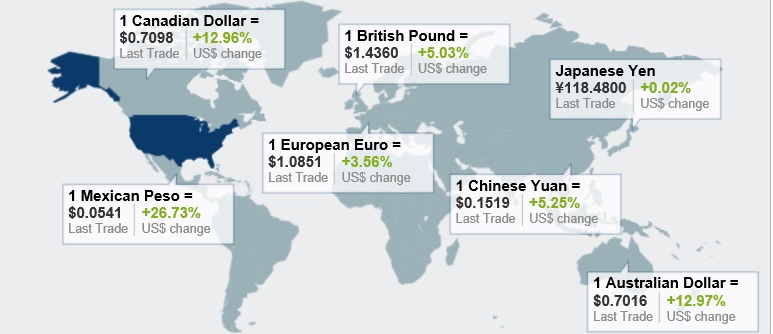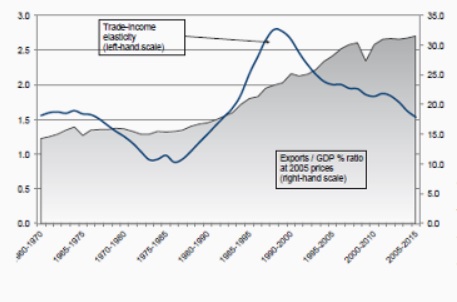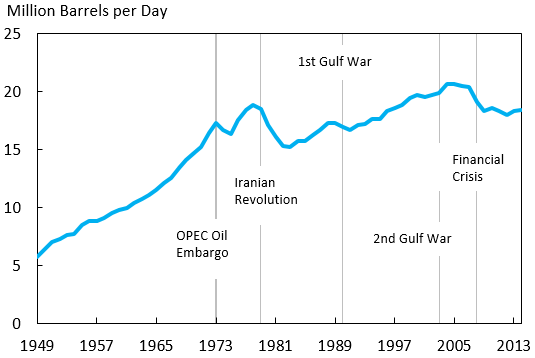The Wandering Yuan, Largest Employers and China’s Trade Partners
This week at International Need to Know as we mourn the death of a pioneer in artificial intelligence*, Fish and all non-Golden State Warrior teams in the NBA, we also examine just how much the Yuan has devalued, who are the largest employers in the world and the extent of China’s dominance as a trade partner. Welcome to this week’s edition of International Need to Know, providing the facts and figures needed to understand our rotating orb.
Of course, if you don’t want to know, just hit “unsubscribe” at the bottom or reply to this email and I’ll remove you from the list. Alternatively, if you want others to be in the know, hit “tell a friend” which can also be found at the bottom. Without further ado, here’s what you need to know.
The Wandering Yuan
You often hear folks express concern about China unfairly devaluing the Yuan. We here at International Need to Know are always skeptical about the utility of devaluing currencies to promote one’s exports In China’s case, we are skeptical they are devaluing much at all. As you see in the graphic below, it’s those darn Canadians and Mexicans whose currencies have greatly devalued against the dollar over the last 12 months. Of course, that might have something to do with the drop in oil prices not currency manipulation. The Chinese Yuan dropped against the dollar at roughly the same rate (5.6%) as the British pound. Clearly it’s time to introduce trade sanctions against the UK. Will China purposefully devalue the Yuan this year to export more? China is a large exporter but in order to export they have to import. That smart phone or tablet you’re reading this on? It may say “made in China” but probably 70 to 90 percent of its components came from outside China. If China suddenly devalues the Yuan, the cost of imports will rise making goods assembled in China more expensive which will counteract any advantages from cheaper exports. The knee bone is connected to the… Now, whether the Yuan will suffer devaluation for market reasons ala Canada and Mexico? That’s a more important question.

The Largest Employers in the World
We should celebrate those who want to employ us, right? Well, via Ian Bremmer, here are the world’s largest employers.
World’s largest employers (workforce #)
1. U.S. Dept of Defense: 3.2m
2. People’s Liberation Army: 2.3m
3. Walmart: 2.1m
4. McDonald’s: 1.9m
5. UK NHS: 1.7m
It’s interesting to note that Walmart perceives Amazon (151k employees) as its biggest competitor and many U.S. politicians perceive China as America’s. One also wonders if every time an order of McDonald’s fries are sold in Liverpool whether UK NHS hires another employee.
Traders to the World
Why is the slow down in China such a big deal? A whole lotta reasons but here’s one via Connectography:
-
Countries for which China is the largest trading partner: 124
-
Countries for which America is the largest trading partner: 56
*Stand by in next week’s INTN for news of a big advancement in AI






